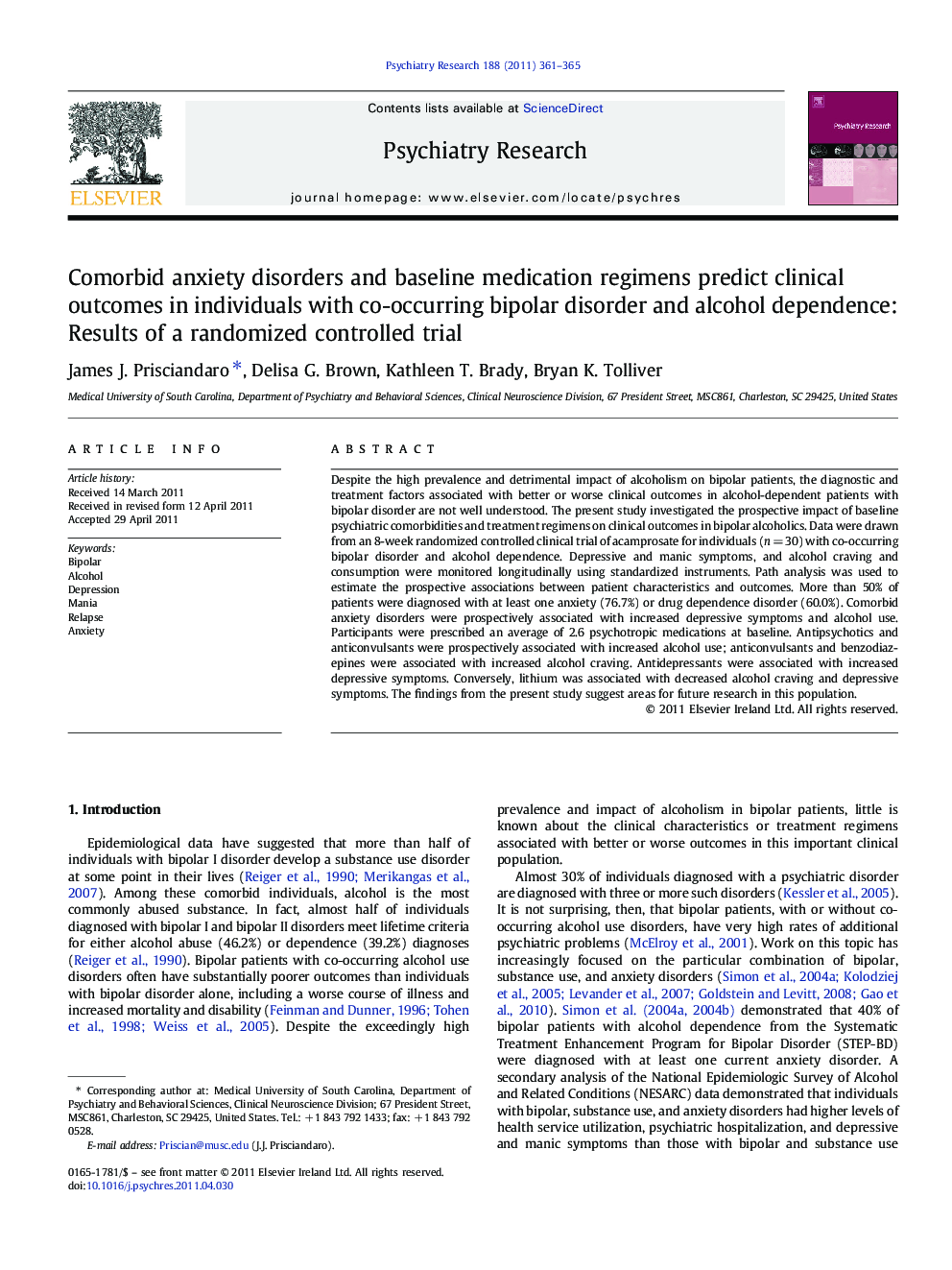| Article ID | Journal | Published Year | Pages | File Type |
|---|---|---|---|---|
| 10305056 | Psychiatry Research | 2011 | 5 Pages |
Abstract
Despite the high prevalence and detrimental impact of alcoholism on bipolar patients, the diagnostic and treatment factors associated with better or worse clinical outcomes in alcohol-dependent patients with bipolar disorder are not well understood. The present study investigated the prospective impact of baseline psychiatric comorbidities and treatment regimens on clinical outcomes in bipolar alcoholics. Data were drawn from an 8-week randomized controlled clinical trial of acamprosate for individuals (n = 30) with co-occurring bipolar disorder and alcohol dependence. Depressive and manic symptoms, and alcohol craving and consumption were monitored longitudinally using standardized instruments. Path analysis was used to estimate the prospective associations between patient characteristics and outcomes. More than 50% of patients were diagnosed with at least one anxiety (76.7%) or drug dependence disorder (60.0%). Comorbid anxiety disorders were prospectively associated with increased depressive symptoms and alcohol use. Participants were prescribed an average of 2.6 psychotropic medications at baseline. Antipsychotics and anticonvulsants were prospectively associated with increased alcohol use; anticonvulsants and benzodiazepines were associated with increased alcohol craving. Antidepressants were associated with increased depressive symptoms. Conversely, lithium was associated with decreased alcohol craving and depressive symptoms. The findings from the present study suggest areas for future research in this population.
Related Topics
Life Sciences
Neuroscience
Biological Psychiatry
Authors
James J. Prisciandaro, Delisa G. Brown, Kathleen T. Brady, Bryan K. Tolliver,
